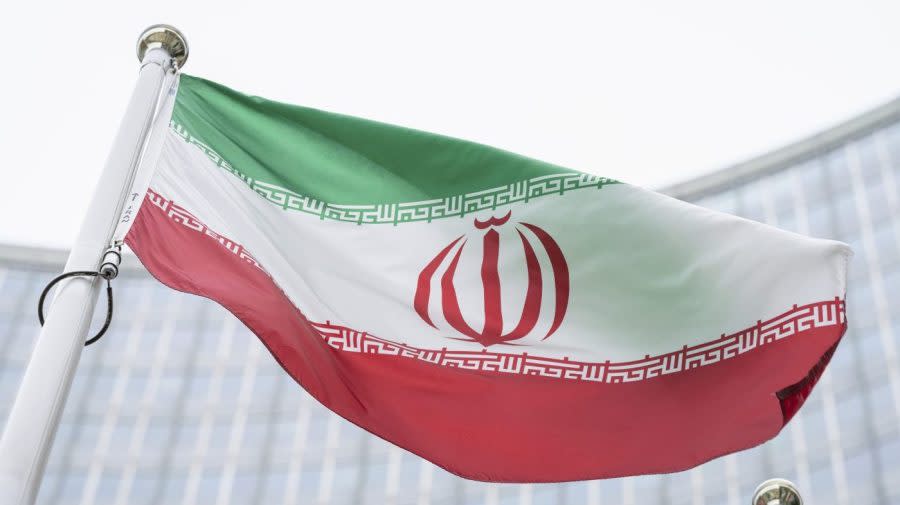US offers caution on Iran prisoner release: ‘This deal is not done’

- Oops!Something went wrong.Please try again later.
The Biden administration is in active negotiations with Iran to bring home five jailed Americans released to house arrest in anticipation of a reported prisoner exchange and the release of $6 billion in oil revenue for the purchase of critical life goods.
White House National Security Spokesperson John Kirby on Friday cautioned that “the deal is not done” and that active discussions on how to bring home the five Americans are taking place.
Kirby also defended the deal from GOP criticism, saying the release of $6 billion will be tightly controlled for the purchase of food, medicine and medical equipment that does not have a dual military use.
“There would be a rigorous process of due diligence and standards applied with input from the U.S. Treasury Department,” he told reporters in a briefing call.
GOP critics have accused the administration of paying out a hefty ransom that will encourage adversaries like Russia and China to target Americans.
“While I welcome home wrongfully detained Americans, unfreezing $6 billion in Iranian assets dangerously further incentivizes hostage taking and provides a windfall for regime aggression,” tweeted Senator Jim Risch (R-Iowa), ranking member of the Senate Foreign Relations Committee.
“The Biden Administration must punish those who use Americans as political pawns and work to end this practice.”
Democrats argued the concessions are a necessary step to rescue Americans unjustly detained.
“Agreements with hostile regimes to release hostages are never easy. They involve tradeoffs. Tough tradeoffs,” tweeted Senator Chris Murphy (D-Conn.), the chairman of the Senate Foreign Relations subcommittee on the Middle East.
“But we are America and we bring our people home. Period. Stop. Biden made the right call.”
President Biden prioritized the release of Americans imprisoned abroad and in Iran, in particular.
Those released to house arrest included Siamak Namazi, who was given a 10-year prison sentence for “collaborating with enemy states,” but has been in prison since 2015; Emad Sharghi, who was sentenced in 2020 to 10 years in prison on charges of spying; and Morad Tahbaz, arrested in 2018 and sentenced to 10 years on charges of spying.
Two other Americans are also part of the deal, U.S. officials have said, but they have not released their names out of respect for their privacy.
“There is more work to be done to actually bring them home,” Secretary of State Antony Blinken said during a press conference Thursday. “My belief is that this is the beginning of the end of their nightmare and the nightmare that their families have experienced.”
The $6 billion stems from Iranian oil profits in South Korean banks that were frozen in 2019 following a decision by the Trump administration to revoke exceptions for certain countries to purchase oil from Iran while it was under U.S. sanctions.
The move was aimed at trying to bankrupt Tehran and bring its oil exports to zero, part of the former administration’s “maximum pressure” campaign that included former President Trump’s exit from the nuclear deal with Iran.
The Biden administration will reportedly transfer those funds to a bank account in Qatar controlled by the Qatari government, which will regulate Iranian purchases.
The successful return of Americans from prison in Iran – reportedly in exchange for five Iranians serving sentences in U.S. jails for sanctions violations – could prove an important confidence building measure between Washington and Tehran related to Iran’s nuclear program.
The New York Times reported in June that U.S. officials were in talks with Iran on an informal agreement where Tehran would limit its enrichment of nuclear-weapon fuel, expand cooperation with international nuclear inspectors, halt lethal attacks on U.S. contractors in Syria and Iraq by its proxy forces and hold back from selling ballistic missiles to Russia.
The U.S., in turn, the Times reported at the time, would release the billions in frozen oil profits and hold back on further tightening existing sanctions.
The reports drew intense pushback from GOP lawmakers who celebrated Trump’s pullout of the deal in 2018.
Kirby on Friday said that the administration is not focused on talks to renew the nuclear deal with Iran, formally called the Joint Comprehensive Plan of Action, but said it would be welcome if Tehran took deescalating steps surrounding its nuclear program.
“If Iran were to take deescalating steps with respect to their nuclear ambitions again, that would all be to the good,” he said. “We are not in active negotiations with Iran, akin to the Iran deal, we’re not in active negotiations about the nuclear program. But certainly, those sorts of steps if they were to be true, would be welcome.”
For the latest news, weather, sports, and streaming video, head to The Hill.

